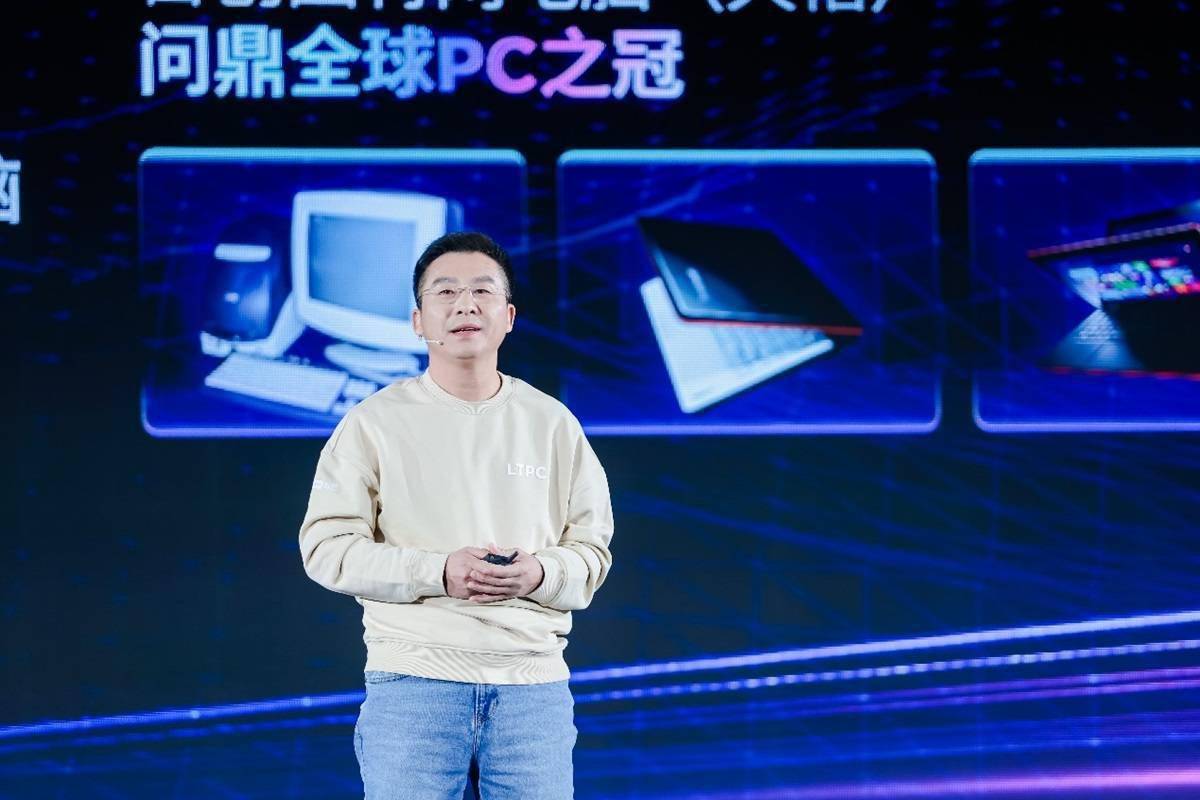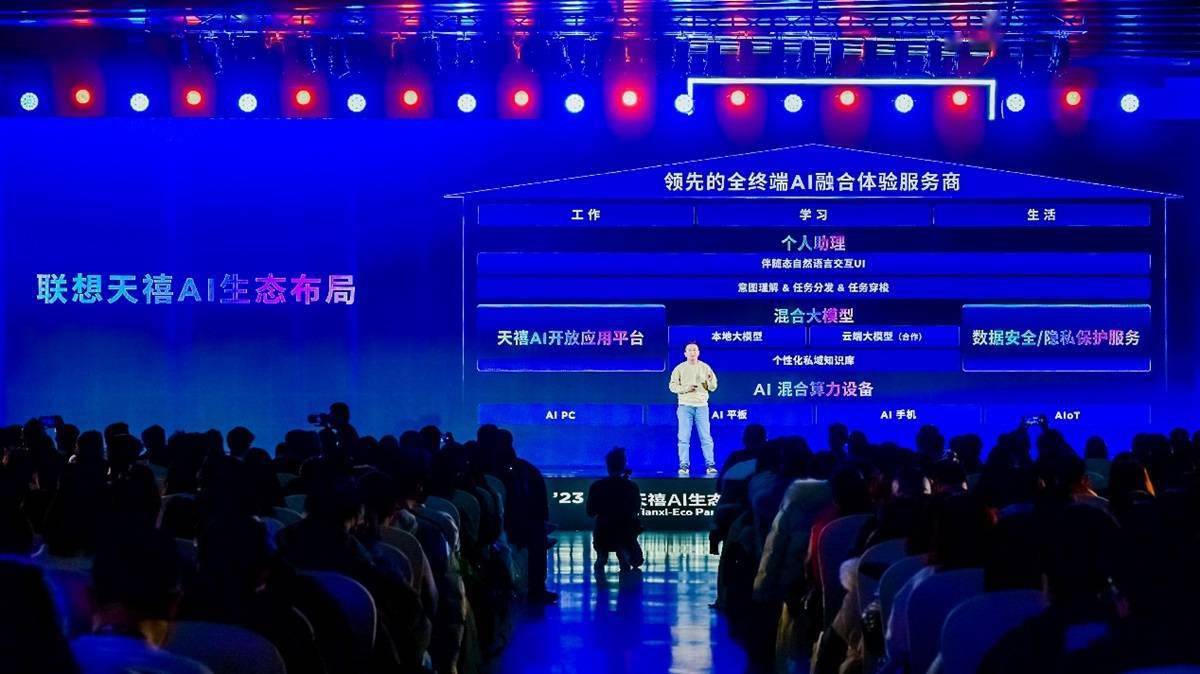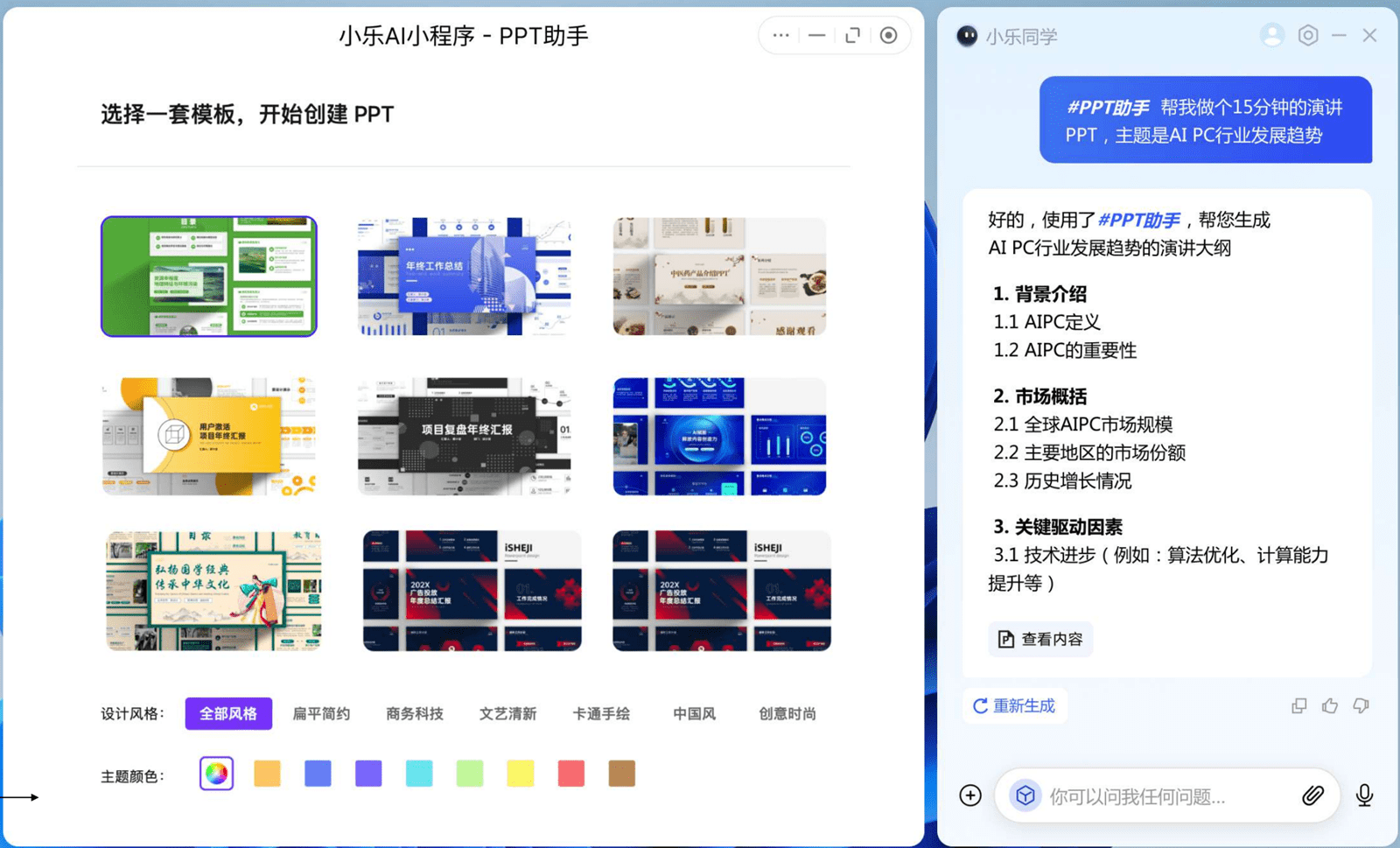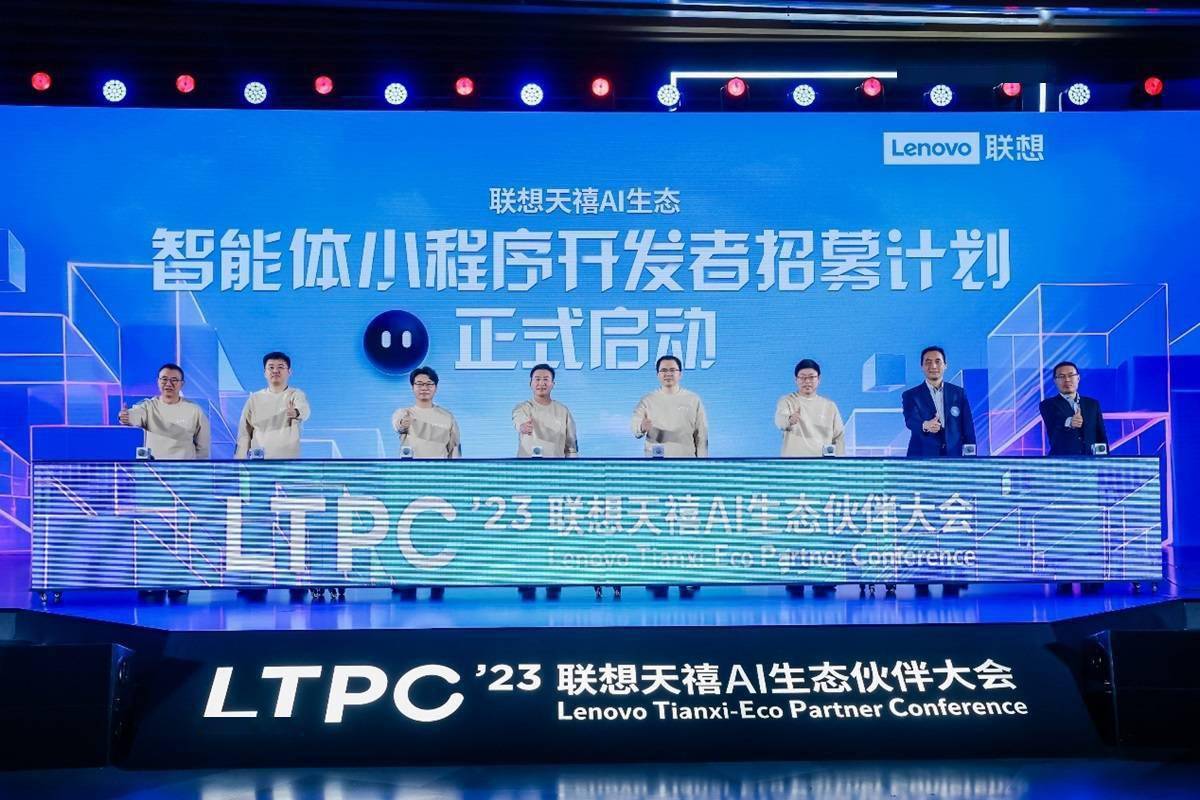
On December 26, 2023, Lenovo Tianxi AI Ecological Partner Conference successfully concluded. At this conference, Lenovo had an in-depth discussion with many partners and developers on the dominant position of AI in the AI ecosystem. Based on the forward-looking layout and judgment of AI and terminal markets, Lenovo Group Vice President and General Manager of China Consumer Business Group Zhang Hua officially released the "four terminals in one" strategy of Lenovo Tianxi AI Ecosystem to bring smarter and more proactive AI services to users

Looking back at the innovation process of personal computers (PC), we can find that the rapid development of technology and needs has promoted every change in equipment. In China, artificial intelligence (AI) has finally begun to focus on AI applications and promote the upgrade of AI equipment services after nearly a year of catching up with AI computing power and other parameters. Lenovo Tianxi released their "four terminals in one" AI strategy. Among them, "four terminals" refers to the four terminal devices of AI personal computers, AI tablets, AI mobile phones and AIoT. "One" has two meanings. On the one hand, it refers to a personal agent that can undertake the tasks of the user's personal assistant; on the other hand, it also means that the personal agent can shuttle between these four types of AI terminal devices to integrate them. Personal intelligence is responsible for breaking down a single system and providing services to users in different terminal devices. It is the core of connecting these four terminal devices and can eliminate the barriers between scenarios. It can be used in AI conferences, AI classrooms, AI games, AI schedule management and other scenarios bring a new intelligent experience

AI terminals mainly rely on devices with embedded AI, using lightweight local large models that have been tailored and pre-trained to meet the different needs of more users, and combine multi-modal cognition and computing power to make AI terminals The device has "brain-like" capabilities and provides users with services in a more timely, more proactive, safer and more personalized way. At the same time, Lenovo’s four-terminal integration strategy will also continue to use large-scale cloud models to provide better solutions for users’ complex tasks. It is foreseeable that in the future, the device-cloud hybrid large model will become the mainstream application method in the AI era

The development of AI terminals enables users to achieve seamless integration experiences on various devices. Under the four-terminal integration strategy, all devices realize interconnection and task flow through high-speed transmission, as smoothly as operating on one device. The significance of the four-terminal integration strategy is to break the physical barriers between different AI terminals and achieve a seamless and efficient cross-device experience. This will bring about disruptive changes to the operating system. The traditional operating system (OS) controls the device through a click interface, but with the shuttle of personal intelligence and the new human-computer interaction method, an upgraded "operating system" has been formed to control the AI terminal. In the AI era, operating systems will be redefined. Just like going from Yantai to Dalian, you now need to take a two-dimensional train, but if there is a three-dimensional cross-sea bridge connecting Jiaodong and the Liaodong Peninsula, you can get there quickly and directly
Xiaole, the personal intelligent agent that debuted at the conference, will become a tool to solve users’ cross-platform needs. In the four-terminal integration strategy, the personal intelligent agent Xiaole will be stationed in multiple terminal environments, using powerful reasoning capabilities combined with a personalized private knowledge base and rich plug-in applications to accompany users and provide services in a proactive manner. For example, when a user receives an urgent PPT request on the way to work, he or she can quickly generate a PPT frame through the mobile AI assistant, and then continue to use the computer for editing after arriving at the company. There is no need to transfer the PPT file from the PPT file through a data cable or software as before. Transfer from mobile phone to computer

With the service of Xiaole, the way users interact with AI terminals will also change in the future. Natural language interaction methods such as body posture, gestures, and voice will replace the original command operations such as keyboard, mouse, and touch. Meet needs in a simpler and more convenient way, such as "My computer is too stuck" will automatically optimize computer settings, "My eyes are not comfortable" will actively adjust the brightness of AI PCs, AI mobile phones, AI tablets and other devices, Accurately analyze user needs and scenarios through large models, split user needs, and serve users better and more comprehensively.
Lenovo Tianxi AI ecological platform is constantly expanding and enriching, providing developers with a variety of development tools and full-process one-stop services. At the same time, it has also launched an intelligent mini program developer recruitment plan to empower developers with capabilities and resources to quickly improve the Tianxi AI ecosystem. The implementation of Lenovo Tianxi AI ecological four-terminal integration strategy will completely change the way users live and work. With the support of artificial intelligence, users' multi-scenario and multi-device usage needs will be unified and will no longer be limited by traditional thinking. For example, PPT can only be produced on a computer or files on a mobile phone need to be referenced when writing documents on a computer. Now, these complex cross-platform requirements can be completed in just one sentence

Users can achieve real practical applications through Lenovo's four-terminal-in-one strategy in the AI era. This strategy combines the mixed use of AI-embedded terminals and large cloud models, with the efficiency and security of local large models. In the future, users will be able to truly experience the innovations in interaction and experience brought about by the development of AI
The above is the detailed content of Lenovo Zhang Hua releases Tianxi AI ecological four-terminal integration strategy, committed to creating more value for developers and achieving win-win results. For more information, please follow other related articles on the PHP Chinese website!




